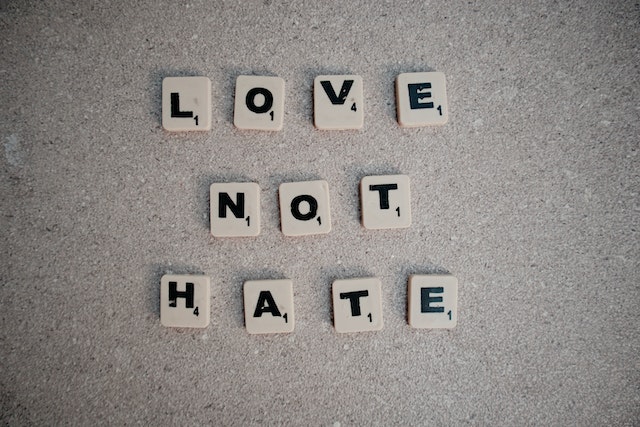The Psychology of Hate: Understanding Its Origins and Complexities
By Editorial Team
The emotion of hate is complex and deeply rooted in human psychology and behavior. While it is difficult to provide a comprehensive explanation for why people hate, there are several psychological, social, and evolutionary factors that contribute to the experience of hatred.
- Fear and Threat Perception: Hate often arises from fear and a perception of threat. When individuals perceive others or groups as a threat to their well-being, values, or way of life, they may develop intense negative feelings, including hate, as a defense mechanism. This fear can stem from economic, cultural, political, or social factors.
- Cognitive Biases: Cognitive biases are mental shortcuts that our brains use to process information quickly. These biases can lead to negative stereotypes and prejudices, which can fuel hatred. Confirmation bias, for example, causes people to seek out information that confirms their existing beliefs and prejudices, reinforcing their negative views of others.
- Socialization and Cultural Influences: Hate can be learned and perpetuated through socialization, including family, peers, media, and cultural norms. If individuals are exposed to hateful beliefs and behaviors from an early age, they may internalize these attitudes and continue to propagate them throughout their lives.
- Group Identity and Tribalism: Humans have a natural inclination to form groups and identify with them. This sense of belonging can lead to “in-group” bias, where individuals favor those within their own group and may develop hostility toward perceived “out-groups.” This tribalism can contribute to intergroup conflicts and hatred.
- Scapegoating: In times of economic or social turmoil, people may seek scapegoats to blame for their problems. This can manifest as hatred directed at specific individuals, groups, or communities. Scapegoating provides a convenient way to assign blame and avoid personal responsibility.
- Psychological Defense Mechanisms: Hate can serve as a psychological defense mechanism to protect one’s self-esteem and identity. When people feel threatened or inferior, they may respond with hatred as a way to feel superior or deflect attention away from their own insecurities.
- Historical and Interpersonal Trauma: Past conflicts, violence, or personal traumas can leave deep emotional scars. These experiences can foster long-lasting hatred, as individuals may associate a particular group or person with their traumatic experiences.
- Lack of Empathy: Empathy, the ability to understand and share the feelings of others, can mitigate hatred. When individuals lack empathy, they may be more prone to dehumanize and vilify others, making it easier to hate them.
- Perceived Injustice: When people believe they have been treated unfairly or subjected to injustice, they may develop strong feelings of resentment and hatred toward those they perceive as responsible for the injustices.
- Economic and Resource Competition: Competition for limited resources, such as jobs or land, can exacerbate hatred. When people perceive others as threats to their economic well-being, it can lead to hostility and resentment.
It’s important to note that hatred is not an inherent trait; rather, it is a complex emotional response shaped by a variety of individual and societal factors. Understanding these factors can help in addressing and mitigating hatred through education, empathy-building, conflict resolution, and social change initiatives. Recognizing that hate often stems from fear, ignorance, and misunderstanding underscores the importance of fostering tolerance, diversity, and inclusion in societies to reduce the prevalence of hatred.

